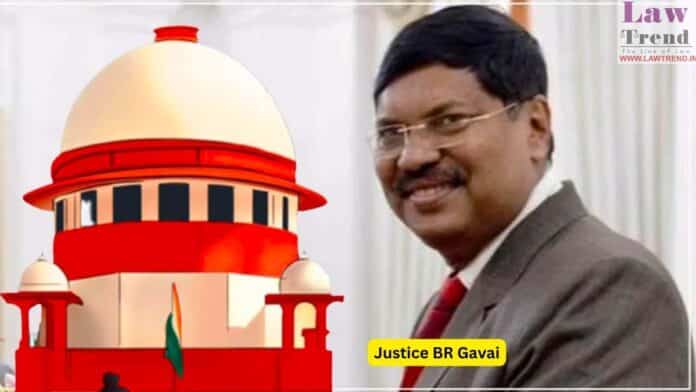Justice Bhushan Ramkrishna Gavai is poised to take oath as the 52nd Chief Justice of India (CJI) on May 14, 2025. The recommendation for his elevation was made by the current CJI, Justice Sanjiv Khanna, in accordance with the established memorandum of procedure for appointing judges to the Supreme Court. Justice Gavai is presently the senior-most judge of the Supreme Court after CJI Khanna and will serve as the CJI until his retirement on November 23, 2025, when he turns 65.
Here are five important facts about the incoming Chief Justice of India:
1. Early Life and Legal Beginnings
Born on November 24, 1960, in Amravati, Maharashtra, Justice Gavai began his legal career in 1985. He initially worked under Raja S Bhonsale, a former Advocate General and High Court Judge, before starting his independent practice at the Bombay High Court in 1987.
2. Practice in Constitutional and Administrative Law
During his years at the bar, Justice Gavai specialized in Constitutional and Administrative Law, representing numerous public bodies, including the Municipal Corporations of Nagpur and Amravati, Amravati University, and state-run corporations like SICOM and DCVL. In August 1992, he was appointed Assistant Government Pleader and Additional Public Prosecutor at the Nagpur Bench of the Bombay High Court. He was later promoted to Government Pleader and Public Prosecutor in 2000.
3. Judicial Career in Bombay High Court
Justice Gavai was appointed as an Additional Judge of the Bombay High Court on November 14, 2003, and became a permanent judge in 2005. He served at the principal seat in Mumbai and benches at Nagpur, Aurangabad, and Panaji. He was elevated to the Supreme Court on May 24, 2019, bringing with him rich experience across multiple jurisdictions in Maharashtra and Goa.
4. Role in Landmark Constitution Bench Verdicts
Justice Gavai has been part of several Constitution Benches of the Supreme Court that delivered landmark rulings:
- In December 2023, he was part of the five-judge bench that unanimously upheld the Centre’s abrogation of Article 370, thereby revoking the special status of Jammu and Kashmir.
- He was a member of the five-judge bench that struck down the Electoral Bonds Scheme, holding it unconstitutional.
- He also participated in the 2016 demonetisation verdict, where a 4:1 majority upheld the Centre’s decision to withdraw ₹1,000 and ₹500 currency notes.
5. One of the Few CJIs from Scheduled Caste Background
Justice Gavai will be only the second Chief Justice of India from the Scheduled Caste (SC) community, after Justice K.G. Balakrishnan. His elevation is seen as a significant step in enhancing diversity and representation within the higher judiciary.
Justice Gavai’s career reflects a consistent focus on constitutional principles, administrative governance, and public law. As he assumes the office of the Chief Justice of India, he will lead the judiciary during a period of crucial legal and institutional developments.




